A pop-up market empowers refugees from Ethiopia in South Sudan
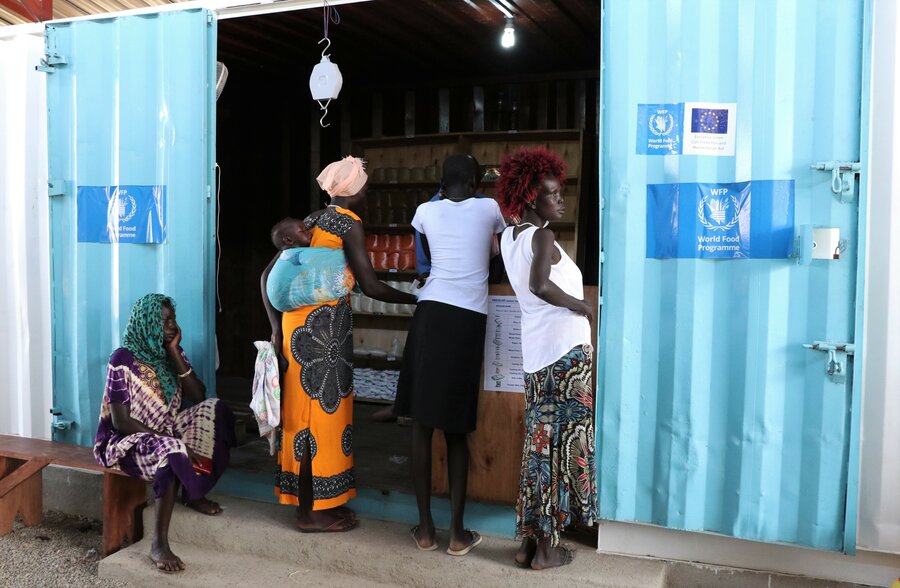
Markets come in all shapes and sizes, from traditional set-ups to online farmers markets. In South Sudan, the World Food Programme (WFP) has rolled out a ‘retail in a box’ pop-up initiative in Gorom refugee camp that is spurring on local businesses while helping refugees buy their foods of choice.
Gorom, some 21km south-west of the capital city of Juba, is home to 2,200 refugees spread across 11 villages. The camp was set up in 2011 to host refugees displaced from Ethiopia’s Gambella region.
To create the new market for the refugee community, WFP installed portable storage containers in the camp, transforming the metal structures into shops and booths with proper doors, windows, ventilation and security measures – ensuring a comfortable shopping experience for the camp’s residents.
Local suppliers were selected and trained by WFP on food safety and quality, cash management and customer service.
“We really like working with WFP,” says Mursal Samater, one of the suppliers that WFP contracted to bring food to Gorom. “We get a steady stream of customers” – who have confidence in what they are buying.
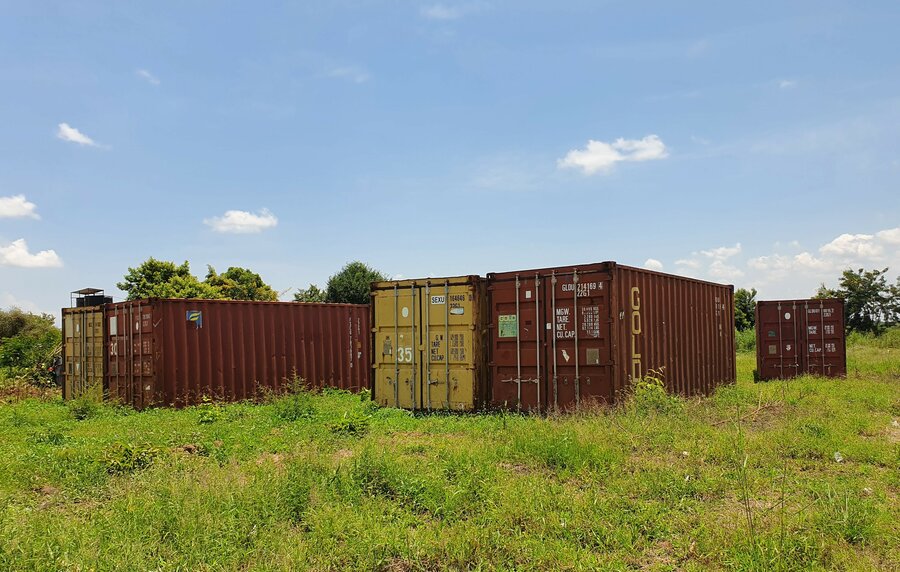
To guarantee fair and stable prices, WFP negotiates a monthly fixed price – based on local market rates – for each commodity. WFP’s field and market monitors keep tabs on the market regularly, making sure food is always available in the right quantity, variety and quality.
The retail-in-a-box initiative has proven a big hit with the refugee community of Gorom camp – people no longer rely solely on WFP’s food rations.
For Ariet, a refugee from Ethiopia, there is nothing more normal than preparing home-cooked meals for her three children: breakfast, lunch and dinner. After her circumstances changed, freedom of choice became a luxury she could no longer afford.
“I fled my own country to escape from warfare and to find safety,” she says. “When I arrived here conditions were basic, and I felt as if I was living out in the open. With time, things became more accommodating.”
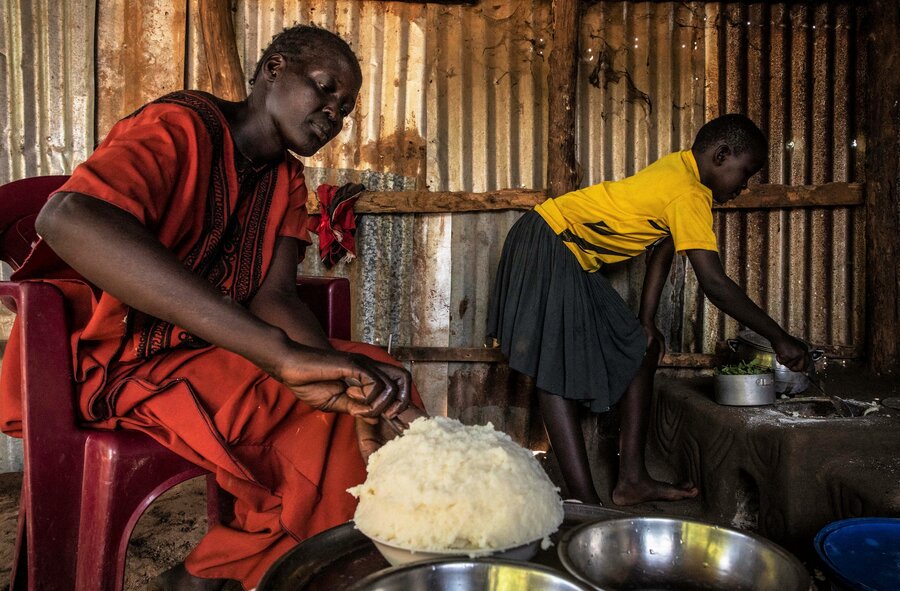
Across from Ariet’s home now stand a series of retail shops that sell a variety of foods and other essential items to serve the needs of thousands of refugees living in the camp. The newly built shops have livened up the camp, with children playing around the stalls after school.
Ariet and other refugee families can now buy food using WFP cash transfers, which offer people choice and the ability to diversify their diets at a low cost, supporting the local economy in the process.
“Before these shops were built, we used to receive monthly rations – now, I can choose what I want to buy and cook for my family and children,” says Ariet.
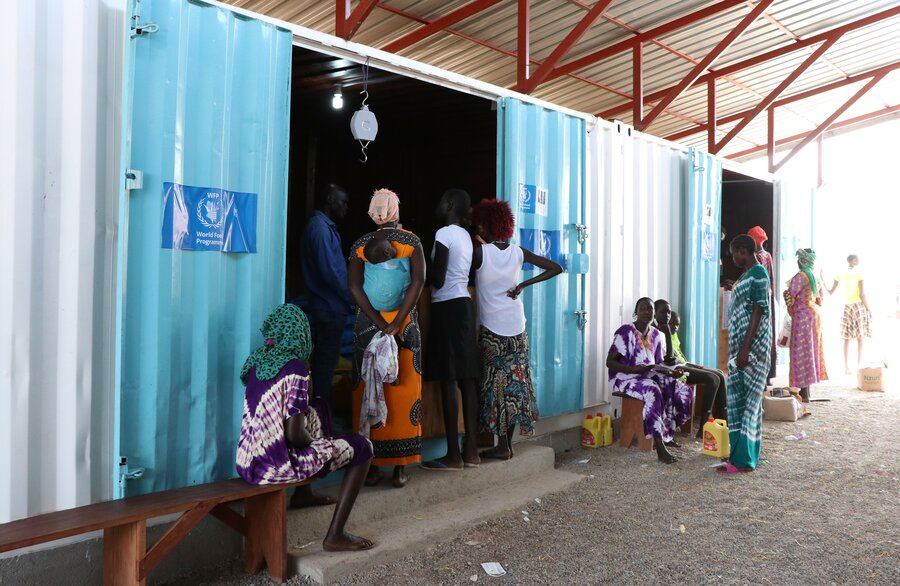
Maize flour, rice and beans are the most popular foods that Ariet and her neighbours like to buy. Prior to this WFP initiative, refugees in this city had access to only sorghum, lentils, vegetable oil and salt.
WFP looks for innovative solutions that facilitate people’s access to essential goods, while also spurring on the local market economy, kickstarting retail networks that support affected populations while giving those refugees a measure of normalcy in their lives.
Where possible, WFP provides cash instead of food assistance to empower people with the choice of buying what they want and strengthen the local economy.
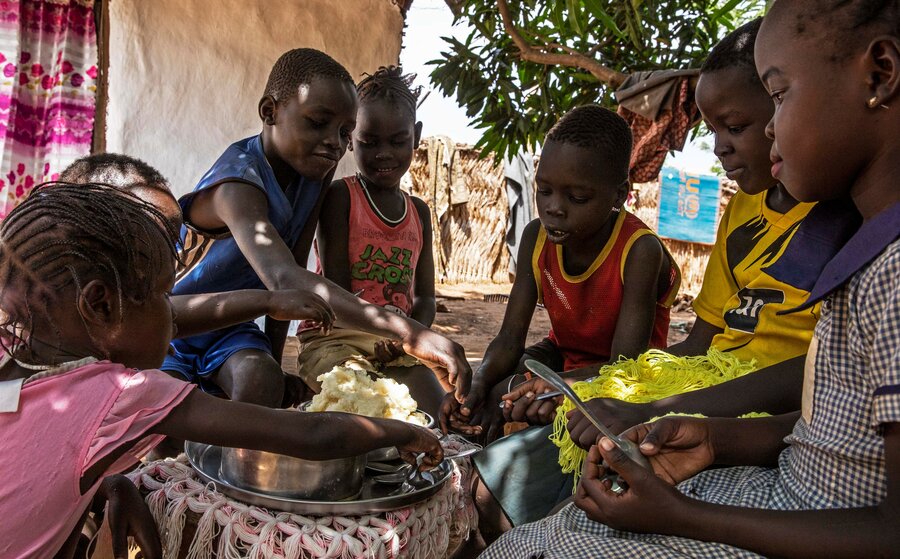
“Now we have evidence that we can positively impact markets to help people have cheaper and better access to food, and we want to continue to do that across South Sudan,” says David Thomas, Head of Innovation at WFP South Sudan.
This year, WFP plans to scale up the retail-in-a-box project to at least three new regions in Lakes, Warrap and Northern Bahr el Ghazal states in South Sudan. This will allow more people to receive cash from WFP and for them to choose how to prioritize their immediate needs.
With similar efforts, more parents like Ariet will be able to provide varied diets for their families, bringing a little taste of home back into their lives.
Supporting refugees with cash assistance is possible thanks to generous contributions from ECHO and the governments of Canada, Germany, Sweden, Switzerland, the United Kingdom and the US.
